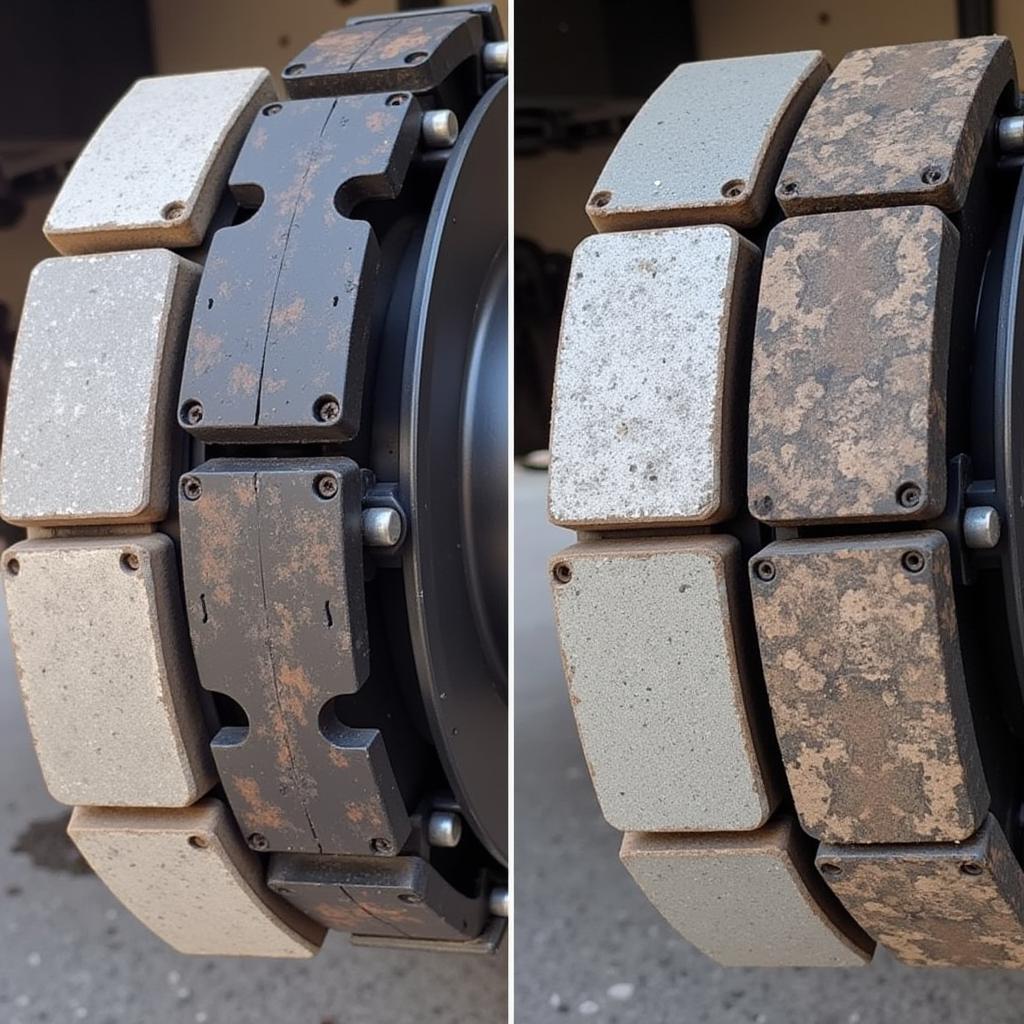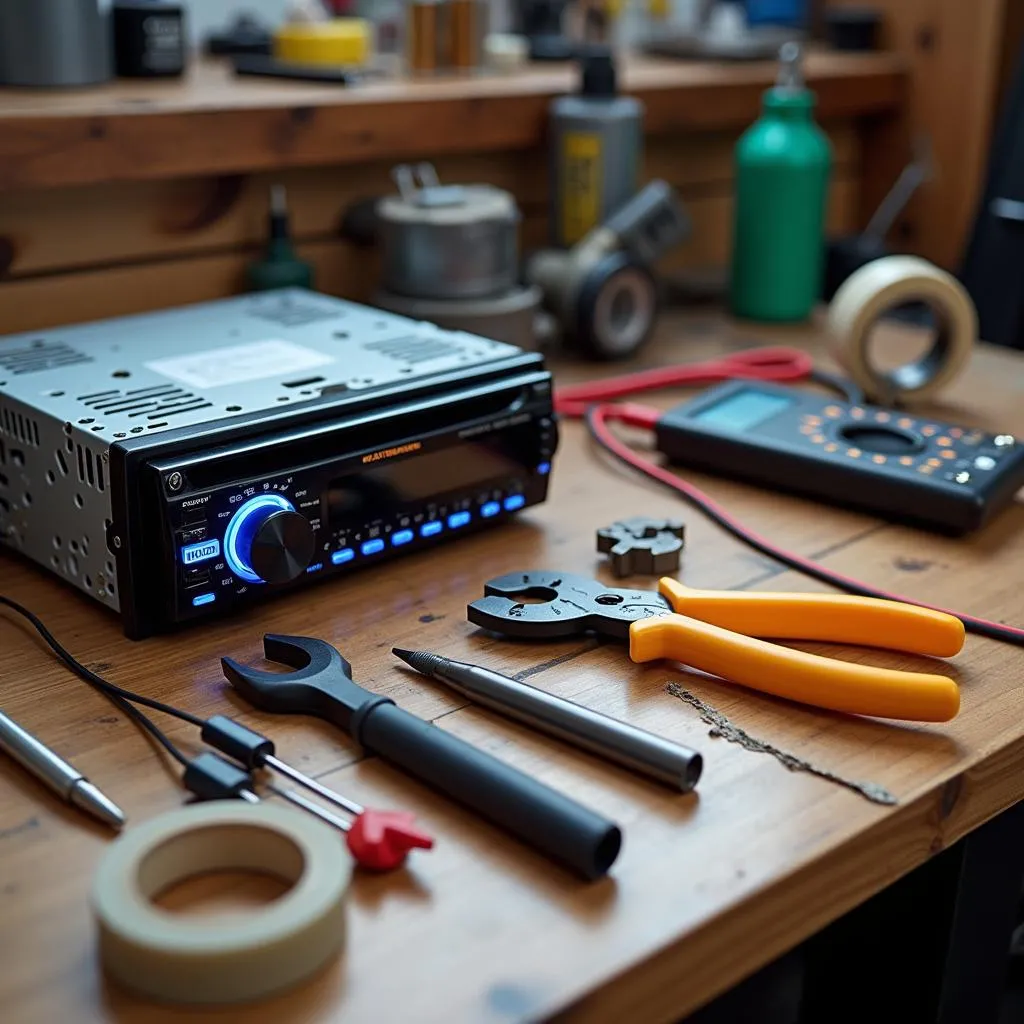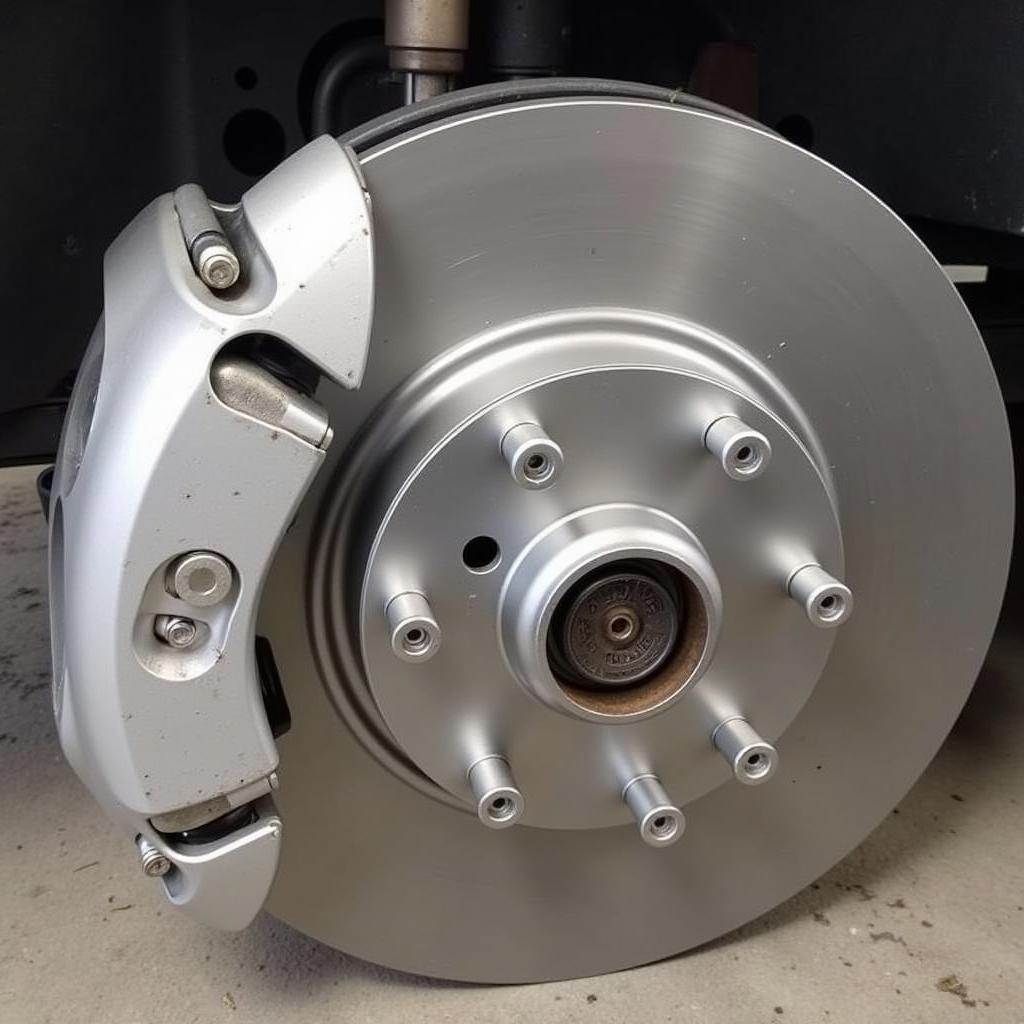The Toyota Prius is a marvel of automotive engineering, known for its fuel efficiency and reliability. However, even the most dependable vehicles can experience issues, and one common problem Prius owners may encounter is the dreaded brake light warning. This article will delve into the common causes of the Toyota Prius brake light warning and provide a comprehensive guide to help you diagnose and address the issue.
Understanding Your Toyota Prius Brake Light Warning
The brake light warning on your Toyota Prius dashboard is a safety feature designed to alert you of potential problems within your braking system. While the warning light itself can be alarming, it’s important to remember that it doesn’t always signify a catastrophic failure. It could be something as simple as a blown bulb or a slightly worn brake pad. However, ignoring the warning could lead to more serious and costly repairs down the line.
Common Causes of a Toyota Prius Brake Light Warning
Here are some of the most common reasons why your Toyota Prius brake light warning might be illuminated:
- Worn Brake Pads: Your brake pads are designed to wear down over time. When they become too thin, a sensor will trigger the brake light warning on your dashboard.
- Brake Fluid Leak: Brake fluid is essential for transferring force from your brake pedal to the brake calipers, ultimately stopping your vehicle. A leak in the brake lines or a faulty brake caliper can cause a loss of brake fluid, triggering the warning light.
- Faulty Brake Light Switch: The brake light switch is responsible for activating your brake lights when you press the brake pedal. If this switch fails, it can cause the brake light warning to appear.
- ABS System Malfunction: The Anti-lock Braking System (ABS) prevents your wheels from locking up during hard braking. A malfunctioning ABS system can trigger the brake warning light as well as the ABS warning light on your dashboard.
- Low Brake Fluid Level: Similar to a brake fluid leak, if the brake fluid level in the reservoir is low, it can trigger the warning light. This could be due to worn brake pads or a slow leak.
 Worn Brake Pads on Toyota Prius
Worn Brake Pads on Toyota Prius
Diagnosing the Problem
Determining the exact cause of the brake light warning often requires some troubleshooting. Here are some steps you can take:
- Check Your Brake Fluid Level: Park your Prius on a level surface and open the hood. Locate the brake fluid reservoir (usually a translucent container with a black cap) and check the fluid level. If it’s below the minimum mark, add more brake fluid that meets your vehicle’s specifications.
- Inspect Brake Pads and Rotors: If you’re comfortable doing so, you can visually inspect your brake pads by looking through the spaces between the wheel spokes. If the pads are thin or you see metal-on-metal contact, it’s time for a replacement.
- Look for Leaks: Check the area around the brake master cylinder, brake lines, and calipers for any signs of fluid leaks. A leak can appear as wet spots or puddles of brake fluid.
Expert Insight: “Never ignore a brake warning light,” says John Miller, a certified automotive technician with over 20 years of experience. “Even if your brakes seem to be working fine, it’s crucial to have the issue diagnosed and repaired promptly. Driving with a compromised braking system is incredibly dangerous.”
What to Do When Your Brake Light Comes On
- Stay Calm: If the brake warning light illuminates while driving, don’t panic. Safely pull over to the side of the road when it’s safe to do so.
- Assess the Situation: If your brake pedal feels spongy or you hear unusual noises when braking, it’s best to have your vehicle towed to a mechanic.
- Contact a Mechanic: If you’re unsure about the cause of the warning light or don’t feel comfortable performing the necessary repairs, contact a qualified mechanic specializing in Toyota Prius vehicles. They can accurately diagnose the issue and perform the necessary repairs.
Preventive Maintenance for Your Toyota Prius Brakes
- Regular Brake Inspections: Have your brakes inspected by a qualified mechanic at least once a year or as recommended in your owner’s manual.
- Timely Brake Pad Replacement: Don’t wait for your brake pads to wear down completely. Replace them as soon as they reach the minimum thickness specified by Toyota.
- Quality Brake Fluid: Use high-quality brake fluid that meets your vehicle’s specifications and have it flushed and replaced as recommended by Toyota.
By understanding the common causes of the Toyota Prius brake light warning and following the tips outlined in this guide, you can ensure the safety and longevity of your vehicle’s braking system. Remember, regular maintenance and prompt attention to warning signs are crucial for preventing costly repairs and ensuring a safe driving experience.
Internal Links:
- For insights into brake warning light issues in other car models, see 2000 Mustang Brake Warning Light.
- If you’re facing similar warning light problems in your BMW, refer to the BMW X3 Brake Warning Light article.


